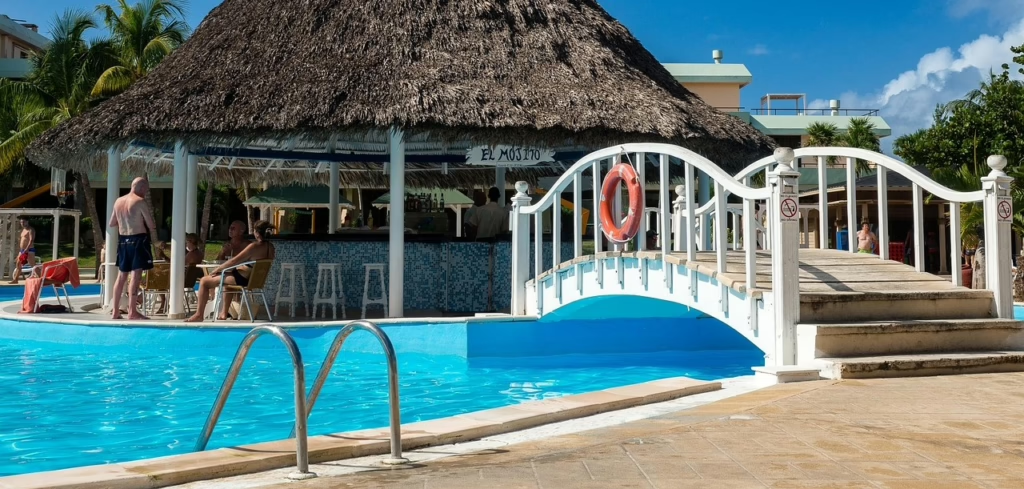Your pool filter is the unsung hero of your pool system, ensuring crystal-clear water by removing debris, contaminants, and impurities. Whether you have a sand, cartridge, or diatomaceous earth (DE) filter, regular maintenance is essential for keeping your pool clean and safe. While professional pool filter repairs are always an option, many pool owners are drawn to the idea of tackling minor issues themselves.
DIY pool filter repair can save money and provide a better understanding of your equipment. However, it’s not without risks. Some tasks are straightforward, but others, such as addressing leaks or fixing cracked housings, require professional expertise. If you’ve been searching for pool filter repair near me, this guide will help you decide when to handle repairs yourself and when to call in the experts.
Common Pool Filter Issues
Pool filters are durable, but over time they can encounter problems that compromise their efficiency. Here are some of the most common issues you may face:
Clogged or Dirty Filter Media
Over time, dirt, oils, and debris accumulate in your filter media, reducing water flow and filtration effectiveness. In sand filters, the sand becomes compacted or loses its ability to trap particles. Cartridge filters can clog with debris, while DE filters may experience a buildup of DE powder or contaminants on the grids. Cleaning or replacing the filter media is often necessary to restore performance.
Cracked Housing or Broken Internal Components
The filter housing is designed to withstand significant pressure, but age, improper maintenance, or freezing temperatures can cause cracks. Similarly, internal components like manifolds, grids, or cartridges can break or wear out over time, leading to reduced efficiency and leaks.
Pressure Imbalances or Leaks
A filter’s pressure gauge can indicate whether there are blockages or imbalances in the system. High pressure often points to a clogged filter, while low pressure may indicate air leaks or flow restrictions. Leaks around seals or fittings can reduce the filter’s effectiveness and waste water.
Pros of DIY Pool Filter Repair
For certain tasks, DIY repairs can be a practical and cost-effective choice.
Cost Savings
One of the primary benefits of DIY filter repair is saving on labor costs. Routine maintenance tasks like cleaning cartridges, backwashing sand filters, or replacing worn O-rings are relatively simple and can keep your filter running efficiently without professional intervention.
Hands-On Learning
Taking on basic filter repairs yourself helps you gain a better understanding of how your pool equipment works. This knowledge can make you more attuned to potential problems and empower you to perform preventative maintenance to avoid costly repairs down the line.
Risks and Challenges of DIY Repairs
While DIY repairs have their advantages, they come with challenges that pool owners should carefully consider.
Incorrect Reassembly or Component Damage
Pool filters are intricate systems, and incorrect reassembly can lead to leaks, inefficiencies, or even equipment failure. For example, improperly installing a filter cartridge or failing to secure a DE filter’s grid assembly can result in poor filtration and additional repairs.
Safety Hazards with Pressure Systems
Pool filters operate under high pressure, and improper handling can be dangerous. Opening a pressurized filter without releasing the pressure first can cause the lid to eject forcefully, potentially causing serious injury. Understanding and respecting the safety protocols of your filter system is crucial for any DIY repair.
Limited Access to Tools and Parts
Many filter repairs require specialized tools or replacement parts that may not be readily available to pool owners. For example, repairing a cracked filter housing or replacing a broken manifold often involves components that need to be ordered from the manufacturer. Professionals have access to these tools and parts, ensuring faster and more effective repairs.
When to Attempt DIY vs. Call a Professional
Not all pool filter issues are created equal. Knowing when to take on a repair yourself and when to leave it to the pros can save you time, money, and frustration.
DIY-Friendly Tasks
Simple maintenance tasks like backwashing a sand filter, cleaning cartridge filters, or replacing small parts such as O-rings and gaskets are manageable for most pool owners. These repairs typically don’t require specialized tools or expertise and carry minimal risk.
When to Call a Professional
Complex issues like cracked filter housings, persistent leaks, or damaged internal components should be handled by a certified technician. Professionals are equipped to diagnose and resolve these problems efficiently, ensuring the longevity of your pool equipment. If you’re dealing with recurring problems or are unsure of the root cause, seeking professional help is the safest and most effective option.
Need professional help with filter cleaning or maintenance? Contact Cabana Pools today for expert service and advice tailored to your pool’s unique needs!
Final Thoughts
A properly functioning pool filter is essential for maintaining clean, safe, and inviting water. While DIY pool filter repairs can be a great way to save money and learn more about your pool system, it’s important to recognize your limits. Basic tasks like cleaning filters or replacing O-rings are manageable for most pool owners, but more complex repairs require professional expertise to avoid safety risks and further damage.
If you’re looking for pool filter repair near me, Cabana Pools is here to help. Our experienced technicians provide fast, reliable service to address even the most complex filter issues. Contact us today to schedule your repair and keep your pool running at its best!




